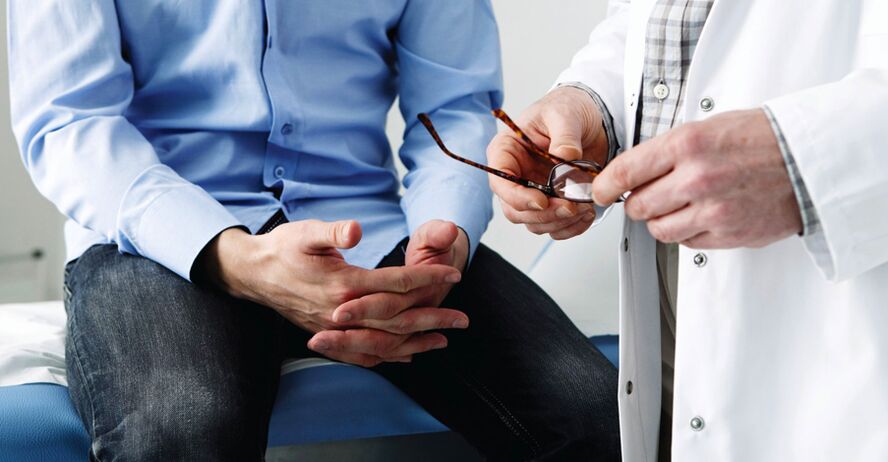A terrible dream of a man and one of the most unpleasant and delicate diseases - prostatitis. They don't like to talk about it and don't pay attention until a severe flare-up starts. . And then - the fight against consequences, where all means are good but little help.
How to treat prostatitis so it doesn't become chronic and why it's easy for them to get sick but hard to get rid of - in our article.
What is prostatitis?
Prostatitis is an inflammation of the prostate, an organ that only men have. Located in the pelvic region, under the bladder. The urethra passes through the prostate.
Prostate Functions:
- produces a secret gland (male sex hormone), which provides sperm motility and is part of the sperm;
- blocks the urethra during erection.
How to treat prostatitis depends on whether it is acute or chronic, but first, let's deal with the symptoms.

How to understand that you are sick
Feelings in Acute Prostatitis:
- high fever, chills;
- pain when urinating, dripping or constantly pulling to the toilet, even though the bladder is empty;
- perineum pain - may be given under the testicles, rectum, genitals or sacrum;
- orgasm weakness, there is no prior range of feelings during intercourse;
- Burning;
- general malaise - muscles, bones, joints aching - it may be difficult for the patient to explain exactly what;
- irritability;
- weakness.
Chronic prostatitis is acute, untreated. The pain completely subsides or is constantly present, but with less intensity, so that the patient does not pay attention to it. Exacerbations occur periodically in chronic prostatitis. The symptoms are the same as the acute ones.
One type of chronic prostatitis is chronic pelvic pain syndrome. This:
- persistent, for several months of pain in the pelvic region,
- frequent need to use the bathroom,
- poor psycho-emotional state.
At the same time, there may not be any bacteria in the prostate secret and the pain is associated with other reasons.
The symptoms serve as a guide for the doctor to determine the type and chart how to treat prostatitis.
How to treat prostatitis
Due to a sedentary lifestyle and sedentary work, the blood stagnates. The cause could be infections, lack of sexual intercourse, hypothermia.
When the first symptoms appear - pain and temperature, you don't have to wait and wait for everything to go away by itself. Do not hesitate to consult a doctor.
In case of acute or exacerbated chronic prostatitis, it is necessary to have a smear, culture of the genital tract to determine what type of disease (bacterial or non-bacterial), and an ultrasound of the prostate.
If in the analysis: gonococci, chlamydia, trichomanade, treat prostatitis with antibacterials and take them together with a partner.
If microorganisms such as staphylococci, streptococci, gardenela, mycoplasma, ureaplasma, in this case, antibacterial drugs should not be taken. These microorganisms always live in a person, are activated during hypothermia, blood stasis and decreased immunity. How to treat prostatitis in this case? Improve immunity and eliminate blood stagnation in the pelvic organs, take regular preventive physical therapy courses. Currently, special physical equipment has been developed and is being used successfully for the clearance of procedures for men.
What the expert prescribes:
- antibiotics;
- anti-inflammatory drugs;
- medications that make it easier to urinate;
- special exercises to improve blood circulation;
- prostate massage;
- physiotherapy;
- vitamins.
The disease does not disappear quickly. The acute inflammation phase lasts 5-7 days. After that, symptoms become less pronounced. The patient thinks everything is fine and stops the treatment. This is the main mistake. Untreated acute prostatitis becomes chronic, and this is a life with constant discomfort during urination, intercourse, and sitting.
How to avoid diseases

Move more.In your free time, walk, run, swim more. But be careful not to get hypothermia. Prostatitis is often associated with blood congestion, so active leisure is beneficial, especially if you have a sedentary job.
Take care of your immunity.Replenish the deficiency of trace elements and vitamins in the body. Be careful with your diet, don't get carried away with salty, smoked and spicy foods.
Monitor your health and follow our recommendations so that the disease doesn't bother you.






























